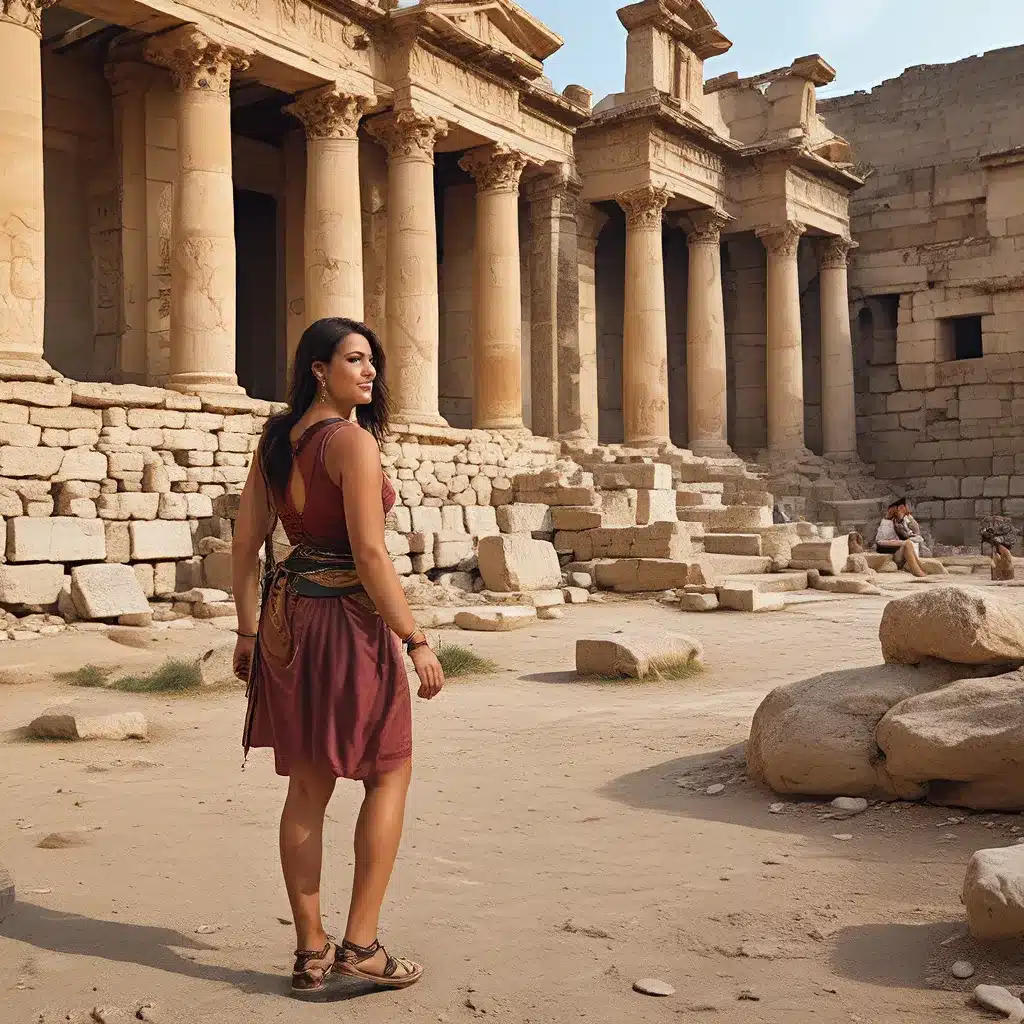
In the vast tapestry of human history, few threads shine as brightly as the extraordinary expeditions and archaeological discoveries that have unveiled the mysteries of ancient civilizations. From the Chaco Canyon in the rugged American Southwest to the Meander River in the heart of Turkey, these ancient traces have captivated the imaginations of scholars, adventurers, and the public alike.
Chaco Canyon: Uncovering a Forgotten Metropolis
Between AD 850 and 1250, the Chaco Canyon in the San Juan Basin of New Mexico was a thriving hub of cultural activity for Native American peoples. The Chacoans, a sophisticated society, built an intricately planned landscape of massive multi-storied masonry buildings, roads with carved stairways and masonry ramps, water control and distribution systems, and a notable concentration of petroglyphs, pictographs, and calendrical markings that documented their understanding of the solar, lunar, and stellar events.
Chaco Culture National Historical Park was designated in 1907 through the Antiquities Act, which was enacted to protect the nation’s cultural heritage from the looting of artifacts and the loss of irreplaceable information by pothunters and private collections. This preservation has enabled professional archaeologists to extensively study the site, which has become a testing ground for techniques and ideas, and has piqued the public’s interest in the rich cultural heritage of the American Southwest.
Today, the Chaco Culture National Historical Park attracts 60,000 to 70,000 visitors per year, who can explore the greathouses, a free-standing great kiva, a complex of small house sites, and a variety of petroglyphs. The site’s designation as a World Heritage Site in 1987 further underscores its international significance and the enduring fascination with this remarkable ancient urban center.
The Meander River: Tracing the Footsteps of History
Flowing through the heart of western Turkey, the Meander River, known as the Büyük Menderes in modern times, has been a witness to centuries of history. From the uplands where it originates to the Aegean Sea where it empties, the river valley is scattered with the ruins of ancient civilizations, including those of King Xerxes, Alexander the Great, Byzantine emperors, Crusader kings, and raiding Turkish sultans.
Following the river’s winding course, one can discover the history and hospitality of the region, as the author of the article, Jeremy Seal, experienced firsthand. Along the way, he encountered welcoming locals, basic village houses, forestry huts, and pumping stations, all while navigating the challenging terrain and battered canoe.
Seal’s journey led him to the Bafa Lake, a protected natural park, where he discovered the ancient city of Heraclea, with its magnificent set of city walls dating back to the third century BC. The city’s ruined colonnades, temples, and ashlar tiers now coexist with the makeshift stone cottages and tended kitchen gardens of the present-day occupants, a testament to the enduring presence of history in this evocative region of Turkey.
The Significance of Archaeological Expeditions
These extraordinary expeditions and archaeological discoveries hold profound significance, not only for our understanding of the past but also for the way we perceive and engage with history. Through the preservation of sites like Chaco Canyon and the immersive experiences along the Meander River, we are able to connect with the tangible remnants of ancient civilizations and better comprehend the complexity and resilience of human societies throughout history.
The The Lost Kingdoms blog aims to explore and celebrate these remarkable journeys of discovery, shedding light on the diverse cultural heritages that have shaped our world. By delving into the stories of ancient peoples, uncovering new archaeological findings, and analyzing the significance of these expeditions, we hope to inspire a deeper appreciation and understanding of the rich tapestry of human history.
Emerging Theories and Ongoing Explorations
As our knowledge of the past continues to evolve, new theories and unexpected discoveries have the power to rewrite our understanding of ancient civilizations. In the case of Chaco Canyon, the protection afforded by the Antiquities Act has enabled professional archaeologists to record its unique features, further piquing the public’s interest and influencing the development of professional archaeology in the United States.
Similarly, along the Meander River, the hidden gems of Heraclea and the myth-haunted Latmos Besparmak mountain have captured the imagination of history buffs, birders, botanists, and hikers, who have come to appreciate the subtler pleasures of this evocative region, where ancient ruins and present-day communities coexist in harmonious synergy.
These ongoing explorations and the continual refinement of our historical knowledge serve as a reminder of the dynamic and ever-evolving nature of the study of the past. By embracing this spirit of discovery, we can uncover the extraordinary and unravel the mysteries that have captivated scholars and adventurers alike for centuries.
Conclusion: Preserving the Past, Shaping the Future
The extraordinary expeditions and archaeological discoveries that have unveiled the secrets of ancient civilizations are not merely relics of the past, but living testaments to the resilience and ingenuity of the human spirit. Through the preservation of these cultural treasures and the continued exploration of the unknown, we can deepen our understanding of the human experience and inspire future generations to uncover the mysteries that still lie buried within the sands of time.
As we xplore the Xtraordinary Xpeditions of Antiquity, let us embrace the remarkable achievements of our ancestors, honor the legacy they have left behind, and forge a future where the lessons of the past guide us towards a deeper appreciation and stewardship of our shared cultural heritage.


